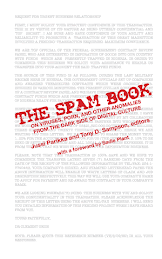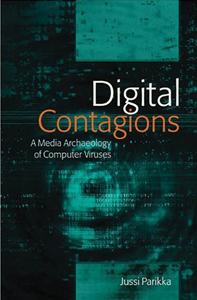What the project we got up and running with Joss Hands is doing is exactly trying to map such blind spots, interzones, transversal connections, multiple scales and new modes of action/discourse that characterize the network culture. Joss is himself finishing a very much needed book on digital activism, and my interests in this field lie in the idea of "politics of imperceptibility"; how beyond a politics of representation, recognizability and visual culture that characterised a post-1960s media cultural approach and cultural theory, we need accounts of politics of becoming invisible, imperceptibility both as the ontology and tactics of network culture. This idea stemming from Deleuze and Guattari has been elaborated in a sense by Elizabeth Grosz in her writings on sensation and nature and for example Galloway and Thacker in their more recent The Exploit-book, speculating on politics of such "future avant-garde"; beyond being registered, informationalized, gridded, there is a need for tactics of avoidance, going off the radar. In this sense, we can also export the idea to a politics of cartography of that which goes of the map, or is not mapped through/in the algorithmic logic of network culture. In other words, the "new configurations" or imperceptible or non-existent of network culture that our networking project explores is not understood in the negative sense of shedding light on such obscurities, but in embracing it as a concrete potentiality of politics. (As a footnote, all this pointing towards e.g. non-representationality is not that new but could be linked to the various conceptualizations that have been emerging from Agamben's coming communities to Deleuze's "people to come" etc.).
Naturally, its not all about rhizomes and distributed networks with such politics -- far from it. As Joss will show in his forthcoming book, for example the much discussed Obama-campaign demonstrated how the power law is at the core of such politics --- not only a politics of the micro, but a politics of the power law. In addition, its still through the old media that such new modes of participation gain their currency and disseminate. Its much more complex also in terms of inter-medial ties. But the actual work starts now...more during the coming 2 years...This is the first larger funded project for ArcDigital and I am sure not the last one.








No comments:
Post a Comment